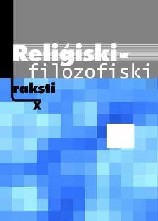Svētceļojuma tradīcija: filozofiskā analīze
The tradition of pilgrimage: a philosophical analysis
Author(s): Māra KiopeSubject(s): Philosophy
Published by: Latvijas Universitātes Filozofijas un socioloģijas institūts
Summary/Abstract: The paper explores pilgrimage as a phenomenon relevant to Latvia’s culture and religion. In the introductory part the author describes a particular pilgrimage and discerns in its structure a number of religious philosophical concepts: calling, prayer, mission, parallels with the spiritual life, the corporeal reality as a manifestation of inner processes, and a communal life. The pilgrimage is explored as an experience that is qualitatively different from the everyday life in that having become a pilgrim a human being moves in the direction of a resemblance to Christ. In her analysis of pilgrimage the author is guided by the work of St. Augustine, St. Thomas Aquinas as well as the Russian philosopher and religious scholar Georgy Fedotov. The paper concludes with a passage that characterises the entire human life as a pilgrimage. Borrowing H.G. Gadamer’s concept of the increment in the human mode of being, the author sugg sts that the pilgrimage be examined as both a religious and an anthropological transformation.
Journal: Religiski-filozofiski raksti
- Issue Year: X/2005
- Issue No: 1
- Page Range: 192-212
- Page Count: 21
- Language: Latvian

